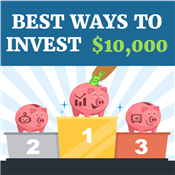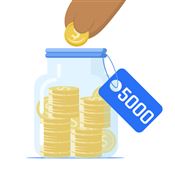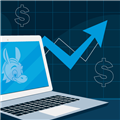How to Invest Money
Invest smartly, even if you're new to the game. Discover how to begin investing in stocks and real estate with little money.
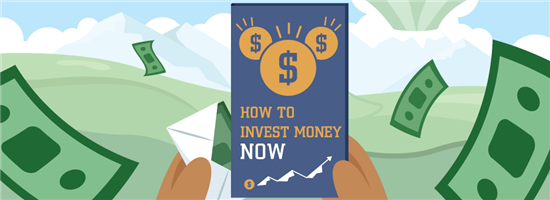 |
| © CreditDonkey |
Investing your hard-earned money may seem scary, but it doesn't have to be.
Luckily, there's never been a better time to start investing. You no longer have to figure everything out yourself. There are plenty of investing tools and resources to help you out.
In this guide, we'll break down the basics of investing, as well as the best types of investments for beginners.
- Decide if you want to do the investing yourself or use a robo advisor.
- Identify your investing goals and timeline.
- Determine how much money to invest per month.
- Determine your risk tolerance and choose investments that match it.
- Open the right account for your goals (taxable, retirement, or other specialty account)
Five Simple Steps to Start Investing (Read First)
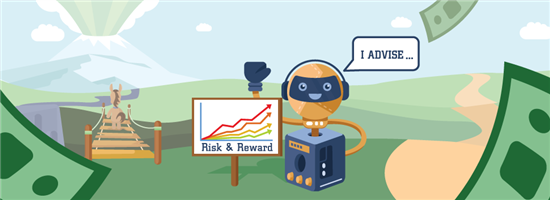 |
| © CreditDonkey |
1 in 3 Americans are afraid to invest. But it doesn't have to be intimidating. Before choosing your investments, consider these five points to start off on the right foot.
1. Decide Between DIY or Robo Investing
Are you comfortable choosing your own investments and managing your own portfolio?
If you prefer a hands-off approach, you might consider using a robo-advisor.
Robo-advisors automatically invest for you. An algorithm picks investments according to your goals and risk profile. They handle all the managing of your portfolio, too.
Hiring an investment advisor may be out of reach for a beginner investor, so this is a more affordable alternative.
M1 Finance: Commission Free Stock Trading
M1 Finance allows investors the choice of ETFs and stocks. M1 charges $0 commission fees on trading
2. Identify Your Investment Goals
What are your short- and long-term financial goals?
- To have a comfortable retirement?
- To buy a house in the next few years?
- Saving for your child's education?
- Financial freedom?
Usually, investing money is best for long term goals (5+ years). This gives you time to ride out the normal ups and downs of the stock market.
If you need money for something sooner (like buying a home or going on a trip), it's better to save the money in a high-yield savings banking account.
3. Determine How Much to Invest Per Month
The general rule is that 20% of your monthly income should go towards investments and savings. The recommended budget is:
- 50% for necessities (housing, car costs, bills, food)
- 30% for fun spending (shopping, eating out, etc.)
- 20% for savings: to be split up between retirement savings and other goals
The important thing is to pick an amount you can commit to. It doesn't matter if it's a small amount. It's much better to start investing young and be consistent, than to wait to have more money.
As you earn more, you can increase your monthly investments. With compounding interest, it'll still grow into a nice sum.
For emergency fund and short-term goals (less than 5 years away), it's better to save money so your funds are available when you need them. But for longer term goals and retirement, it's better to invest, which offers much higher returns.
4. Determine Your Risk Tolerance
Your risk tolerance is how much risk you can afford to take. The main determining factor is your age. If you're young (in your 20s and 30s) and saving for retirement, you can afford to take more risks. The further away your goal is, the more time you have to recoup a loss.
A higher risk tolerance means you can have a more aggressive investment strategy. Your portfolio can contain a majority percentage in stocks, which are more volatile but also have more potential for bigger rewards.
On the other hand, for those closer to retirement age, less risky investments are the way to go. You'll want to have more of your portfolio in stable investments, like bonds.
- High risk (aggressive): 90% stocks / 10% bonds
- Medium risk (moderate): 60% stocks / 40% bonds
- Low risk (conservative): 30% stocks / 70% bonds
5. Open the Right Account for Your Goals
Now, you're ready to open your investment account with either a robo- or DIY investing platform.
You'll be asked to choose what kind of account to open. There are several account options depending on your goals:
- Taxable account: A general-purpose investment account. You can withdraw funds at any time, so it's ideal for shorter term goals. There's no limit to how much you can invest.
- Retirement account: Includes Traditional and Roth IRAs. These accounts offer tax advantages, but there are contribution limits and early withdrawal penalties if you withdraw before age 59.[1]
- 529 college savings account: This is a special plan for college tuition savings that also offers tax benefits.
You can open more than one type of account at a brokerage and it's a good idea to have both taxable and retirement accounts.
Generally, brokers do not check your credit score when you open a regular investment account. Your trading activities will not affect your score. A margin account may require a check, but that should only be for more experienced investors.
Best Ways to Invest Money for Beginners
 |
| © CreditDonkey |
Now that you've thought about how to invest... the next question is: what do you invest in?
Here is an overview of seven easy investing ideas suitable for rookies and more experienced investors. With this guide, you'll be ready to take the next step.
| Type of Investment | Good For |
|---|---|
| Robo Advisors | Passive hands off investing |
| Stocks | High potential growth |
| Bonds | Stable low risk investing |
| Mutual Funds & ETFs | Instant diversification |
| Employer 401(k) | Retirement planning |
| Traditional or Roth IRA | Retirement planning |
| Cryptocurrency | High-risk, high potential returns |
| Real Estate Crowdfunding | Alternative investing |
1. Use a Robo Advisor
Risk level: High
Time horizon: Long-term (10+ years)
Good for: Passive investing
Using a robo-advisor is the easiest way for beginners and young adults to start investing. It automatically invests your money for you and manages your portfolio. It's a good choice for investors who want to be completely hands-off.
You answer questions about your goals and preferences, and the software algorithms will create an investment strategy. It makes all the investment decisions for you and takes care of all the buying and selling so you don't have to worry about anything.
It takes the emotion out of the investing, so you don't make rash decisions if stock prices fall.
Plus, robo-advisors can help you stay on track by handling complicated tasks like rebalancing your portfolio and tax saving strategies.
A lot of robo-advisors don't have account minimums, so you can open an account even with just a little bit of money.
Invest Automatically with M1 Finance
2. Invest in Stocks
Risk level: High
Time horizon: Long-term (10+ years)
Good for: High potential growth
Want to be more hands-on with your investments? Consider buying a few individual stocks. A stock is a direct investment in a company. When you buy a stock, you are owning a tiny piece of the company.
And today, the barrier to the stock market has never been so low. Almost all major brokerages have eliminated trade commissions for stocks, meaning you can make trades for free.
Plus, a lot of brokers offer fractional shares. This means you can buy just a tiny fraction of a stock if you don't have enough for a full share. So instead of needing $500 to buy a single share of Netflix stock, you can just invest as little as $5.
Start with one of these apps for those just getting into stock trades.
- Stash Invest: Guides you to pick stocks that match your goals.
- M1 Finance: Create your own portfolio. Commission free trades, $100 minimum. No management fees.
- Robinhood: Discount broker app for trading stocks, options, and cryptocurrencies with no trading commissions. No deposit requirements.
- Growth stocks - From companies with high growth potential; typically don't pay dividends
- Dividend stocks - Usually from large blue chip companies with stable history; pay dividends on a regular basis which can be a great form of cash flow
- Defensive stocks - Stable stock price and performance not affected by things like economic conditions and political crisis
You can keep up with news on stocks on sites like Yahoo Finance, Wall Street Journal, and Morningstar.
3. Buy Low Risk Bonds
Risk level: Low
Time horizon: Short- and long-term (1-10 years)
Good for: Stable, low-risk investing
It's wise to have a mix of stocks and bonds in your portfolio. Bonds are more predictable and less risky than stocks, so having investments in bonds can balance out the risk.
A bond is a type of debt investment. It's essentially a loan to a company or government to help fund new operations (just like how you might need a bank loan for your mortgage).
Bond are fixed-income securities. The companies borrow money and agree to make interest payments at a fixed interest rate over a set period of time. At maturity, you'll get your principal back.
- Corporate bonds: Offered by corporations looking to raise capital
- Index bond funds: A conservative portfolio of bonds in a single, diversified fund; offered by brokerages like Vanguard and Fidelity
- Municipal bonds: Issued by towns, cities, and states to fund public projects
- Treasury bonds (T-bonds): Offered by the federal government (different from savings bonds, which can only be purchased directly from the US Treasury)
4. Diversify With Mutual Funds And ETFs
Risk level: Moderate
Time horizon: Long-term (10+ years)
Good for: Instant diversification
Buying mutual funds and ETFs is another great choice for rookie investors because they instantly diversify your portfolio.
A mutual fund is a basket of assets like stocks or bonds. They are professionally managed, which makes it ideal for new investors. One mutual fund can contain hundreds of securities.
Mutual funds are usually purchased in dollar amounts and trade just once a day at closing. You can purchase them directly through the mutual fund company (such as Vanguard or Fidelity) or through a brokerage (like TD Ameritrade or E*TRADE).
Exchange-traded funds (ETFs) are also a collection of stocks and bonds. But they are purchased in shares and traded just like stocks throughout the day.
Index funds are a category of mutual fund or ETF that follows a specific market index. For example, you can buy into an S&P 500 Index fund, which invests in the 500 largest U.S. companies.
5. Enroll in your Employer 401(k)
Risk level: Low to High (depending on the investments you choose)
Time horizon: Long-term (10+ years)
Good for: Retirement planning
If you don't have a lot of extra money to invest, taking advantage of your employer 401(k) plan is the best place to start.
Most employers will match 401(k) contributions. That's free money they're offering towards your retirement.
When you enroll in a 401(k) plan, a portion of your salary is taken out even before the paycheck reaches your hands. You don't see it and so won't even miss it. That money gets invested and will grow.
Even better, your 401(k) contributions are tax deductible, so your tax bill will be less. For 2021, the maximum contribution amount is $19,500 ($19,000 for 2020).[2]
Try to contribute at least the company match amount. Otherwise, you're leaving free money on the table. Even if your company doesn't offer a match, contribute what you can and increase the amount when you get a raise.
Blooom is a unique tool to help you analyze your 401(k) for free and provide suggestions. For $10/month the robo-advisor service can manage your 401(k) account for you.
6. Save for Retirement in an IRA
Risk level: Low to High (depending on the investments you choose)
Time horizon: Long-term (10+ years)
Good for: Retirement planning with tax benefits
IRAs are Individual Retirement Accounts that you can open at brokerages. These allow you to invest more for retirement beyond just an employer 401(k). IRAs also provide tax advantages.
There are two personal IRA account options:
- Traditional IRA: Contributions are tax deductible when it's time to fill out tax return. You pay taxes when you withdraw the funds, but the benefit is that you'll most likely be in a lower tax bracket by then.
- Roth IRA: This is the opposite. Contributions are made with after-tax dollars and are not tax deductible. However, the upside is that your withdrawals are tax-free.
You can open IRAs either from a self-directed trading platform or a robo-advisor. Whichever route you take, beware of contribution limits. For 2020 and 2021, the maximum amount you can invest in a Roth is $6,000. If you're 50 or over, you can contribute $7,000 (called a catch-up contribution).[3]
You can also roll over your company's 401(k) into an IRA account.
7. Invest a Small Portion in Cryptocurrency
Risk level: Very high
Time horizon: Mid- and Long-term (5-10 years)
Good for: Younger or high-risk-friendly investors
Cryptocurrency is always evolving, and it's never too late to get in on the action. Plus, it's surprisingly easy for beginners to get started.
First, research a coin you're interested in. Bitcoin and Ethereum are the most popular options, but there are other niche cryptos that boast impressive use cases. This includes coins like Cardano, Tron, and ChainLink.
Once you pick your coin, you'll want to find an exchange to buy it on. Many exchanges also let you "stake" your crypto, which may help you earn much more than by appreciation exclusively.
8. Invest in Real Estate
Risk level: High
Time horizon: Short-term (6 months - 5 years)
Good for: Alternative investing
You no longer need to be a millionaire to enter the world of real estate investing. Online real estate investing platform has made it possible for everybody to get their hands on this space.
Real estate investing platforms let you pool money with other investors to fund projects together. You earn returns from the rents collected and when the property appreciates in value.
The platform will automatically invest your money in different properties. It handles all the management, so you're free of the responsibility of dealing with tenants, repairs, and other hassles of being a landlord.
These real estate investing sites are open to everyone:
- Fundrise: $10 minimum. Invest in diverse real estate properties across the U.S.
- DiversyFund: $500 minimum. Invest in multi-family rental homes
- Groundfloor: $100 minimum. Invest in short-term real estate debt investments with high-yield returns.
Historically, the real estate market has had higher returns than the stock market, so this is a great way to invest in this sector.
These types of real estate investing are only done through platforms and are not sold on public exchanges. So a downside is that this is usually at least a five-year investment.
Invest in Real Estate with $10+
- Only $10 minimum investment
- Get a diversified portfolio of real estate projects across the US
- Open to all investors
More Options for Investing
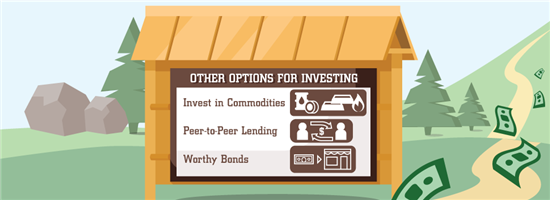 |
| © CreditDonkey |
To further add diversity and put your money to work, you can consider some alternative investing options like the following:
Invest in commodities
Commodities are physical resources like precious metals (gold & silver), gas, oil, and livestock. Many people invest in commodities as a protection against the volatility of the stock market and difficult financial times.
Worthy bonds
The Worthy investing platform allows you to purchase bonds that offer loans to growing American businesses. Worthy offers fixed returns and you can invest as low as $10 in each bond. You can cash out your money at any time with no fees.
Dividends are to be reported every year. The tax rate depends on your income. For investments that increase in value, you only pay taxes when you sell a security and make a profit. Any capital gains will be taxed according to how long you've had the investment and your taxable income.
Best Short Term Investments
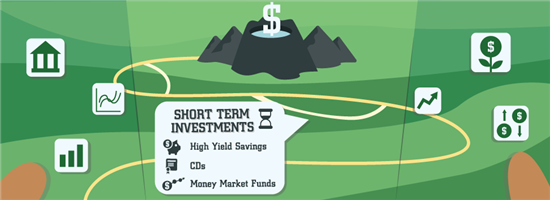 |
| © CreditDonkey |
If you are saving cash for near future goals (less than 5 years), it's best to put your money in risk-free investment vehicles. This way, your principal won't lose any value.
You can use some of these options for short term goals:
High yield savings account
A savings account is a great place to park your cash and have it grow a little. It's ideal if you'll need quick access to your money, like for an emergency fund.
Here are some of our top picks for online savings accounts with high APY rates. Many have no minimum deposits or balances.
Money market accounts function much the same way, but some offer checkwriting and bill pay functions.
Certificates of deposit
A CD requires you to commit your money for a fixed amount of time. But in return for less liquidity, the bank or financial institution often offer higher yields. Keep in mind that if you withdraw your money before the maturity dates, you'll incur a penalty.
Money market funds
This is a sort of extremely conservative mutual fund. It invests in short-term cash equivalent securities, like treasuries, CDs, and commercial papers. It's a very safe investment that you can take out at any time.
A high yield savings account is completely risk-free, but the returns are poor. Investing in the stock market will give you the best returns.
If you're concerned about risk, it's smart to invest in an ETF (exchange traded fund) that covers a broad market. ETFs are safer investments than individual stocks because they're automatically diversified.
Learn about the three-fund portfolio for a simple investment strategy.
How Much Should You Invest?
The general rule of thumb is to invest 20% of your take-home pay. This can be spread among a combination of short-term savings, general investing purposes, and retirement accounts.
The budget guideline should look like this:
- 50% for necessary expenses like housing, car, utilities, and basic food
- 30% for fun things like eating out, movies, shopping, etc.
- 20% for savings and investing
Being able to meet this investing goal does require a willingness to practice good money habits and budget. If you need help, use one of these online budget tools.
Managing Risk for New Investors
Don't think of investing as a gamble with your hard-earned money. The key aim is to minimize risk. The best way to do so is by diversifying your portfolio with assets of different levels of risks and sectors.
In other words, don't put all your eggs in one basket. Instead of investing a lot of money into one single stock, spread out your investments into many different stocks. An easy way to do this automatically is by investing in ETFs and mutual funds.
It's also important to diversify your investments in an array of asset classes. Some examples include:
- U.S. stocks
- U.S. bonds
- Global stocks
- Global bonds
- Commodities
- Real estate
Even within each asset class or group, invest in companies in a variety of industries. This way, let's say the technology sector experiences failure, you won't be in trouble. You may still have investments in the healthcare area to balance it out.
Another strategy to lessen risk is dollar cost averaging. This is when you spread out stock purchases over set intervals, instead of buying in one lump sum. This reduces the impact of market fluctuations.
Remember, the general rule of thumb is that the riskier the investment, the higher the reward (and vice versa).
You can use one of these investment management tools to easily keep track of your portfolios. They allow you to link up accounts from all your financial institutions, so you can keep track of everything in one place.
But First - Before You Invest Money
As much as you may be tempted to dive right into investing, it's important to get your personal finances in order first before you invest. Investing should only be done after sorting out other money issues.
Before you invest, consider these factors. Do you have:
1. An emergency fund
It's important to have funds set aside to cover emergencies like car repairs or medical bills. In the event that you lose your job, it'll act as a safety net to pay for mortgage or rent, food, utilities, and other necessities.
Many advisors recommend enough to cover three to six months of living expenses.
2. A healthy level of debt
If you have credit card debt, especially those with high interest rates, it's important to prioritize paying off credit cards before you focus on how to invest money.
Some debts, like fixed-term debt such as mortgages or car loans, are usually not a problem, because they have lower interest rates and a fixed payment plan.
3. A retirement plan
No matter your age, it's important to know how you will save for retirement and to get started soon. Take advantage of all the tax-advantaged retirement accounts that you can.
The easiest way is to contribute to your company's 401(k). If you don't have one, then prioritize investing in an IRA over other types of investments.
CreditDonkey Survey Reveals How Americans Invest in 2021
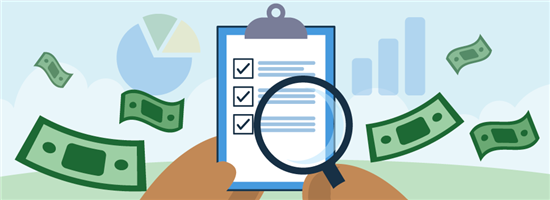 |
CreditDonkey conducted a survey of 1,080 Americans to uncover their investing habits. Here's what we found.
Gen Z Investing Earlier, More Cautiously Than Millennials
Gen Z has grown up with financial knowledge at their fingertips. Thanks to increased internet access and social media, Gen Z is able to learn and share knowledge more efficiently than previous generations.
But these young investors have come to age during uncertain times. They've seen the financial challenges Millennials have faced. As a result, they're more risk-averse despite having more time to invest and recoup any losses.
Americans are investing earlier than ever
- More than half (57%) of Gen Z adults started investing before age 25, compared to just 14% of Millennials and 8% of Baby Boomers.
- More than half (53%) of Gen Z feels knowledgeable about investing.
Gen Zers invest more cautiously than Millennials
- Despite their head start on investing, only 33% of Gen Z invests aggressively, compared to 40% of Millennials. Millennials are 1.4x more likely to invest aggressively than Gen Z.
- Nearly 1 in 5 Gen Zers prefer cash over stocks as a long-term investment.
Gen Z is more pessimistic about the future than Millennials
- Only 1 in 4 Gen Z adults have a high level of confidence in their financial future, compared to 1 in 3 Millennials.
- 15% of Gen Z had poor confidence in their financial future, compared to 10% of Millennials.
Baby Boomers Falling Behind on Investments
The oldest Baby Boomers became eligible to retire in 2012, and millions are retiring each year. Despite this, a surprising number of Boomers are ill-prepared for their later years.
Many Baby Boomers do not have a retirement account
- Although retirement is on the horizon for many Boomers, 2 in 5 do not have a 401(k). 2 in 3 do not have an IRA.
- 14% of Boomers haven't begun investing at all.
Boomers feel the least knowledgeable about investing
- Less than half (44%) of Baby Boomers said they felt knowledgeable about investing, compared to 53% of Gen Z, 61% of Millennials, and 57% of Gen X.
| Gen Z | Millennials | Gen X | Baby Boomers | |
|---|---|---|---|---|
| Started investing at age 18-24 | 57% | 14% | 8% | 8% |
| Hasn't begun investing | 19% | 10% | 14% | 14% |
| Invests aggressively | 33% | 40% | 35% | 28% |
| High confidence in financial future | 25% | 33% | 25% | 16% |
| Low confidence in financial future | 15% | 10% | 12% | 15% |
| Has a 401(k) | 33% | 65% | 58% | 57% |
| Has an IRA | 22% | 44% | 32% | 34% |
| Feels knowledgeable about investing | 53% | 61% | 57% | 44% |
| Prefers cash over stocks as a long-term investment | 19% | 15% | 13% | 19% |
CreditDonkey conducted the online survey of 1,080 Americans, age 18 and over, on May 24, 2021.
What Experts Say
As part of our series on investing and saving, CreditDonkey assembled a panel of industry experts and authority figures to answer readers' most pressing investing questions.
Here's what they said:
Bottom Line
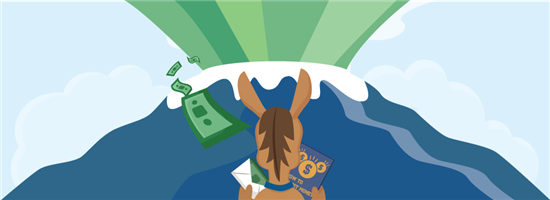 |
| © CreditDonkey |
When you learn the fundamentals of how to invest money, you'll have the opportunity to make your money work for you. Investing is crucial if your goal is long-term wealth building. Not investing your money is literally just like stuffing money under the mattress.
Make sure to identify your goals and investing needs first. Then with the above investment strategies, you can start to build a portfolio and grow your money. Whatever approach you take, before investing in anything, do your homework and due diligence. Consider the pros and cons.
The fact is the sooner you can start investing, the more you can benefit and grow your retirement nest egg. With smart methods, even small sums can turn into fortunes. Good luck!
Additional Resources
References
- ^ "Exceptions to Tax on Early Distributions": IRS.gov, 2022.
- ^ IRS, Retirement Topics - 401(k) and Profit-Sharing Plan Contribution Limits, Retrieved 12/11/2020
- ^ IRS, Retirement Topics - IRA Contribution Limits, Retrieved 12/11/2020
Write to Rebecca M at feedback@creditdonkey.com. Follow us on Twitter and Facebook for our latest posts.
Note: This website is made possible through financial relationships with some of the products and services mentioned on this site. We may receive compensation if you shop through links in our content. You do not have to use our links, but you help support CreditDonkey if you do.
Fundrise, LLC ("Fundrise") compensates CreditDonkey Inc for new leads. CreditDonkey Inc is not an investment client of Fundrise.
|
|
| ||||||
|
|
|





